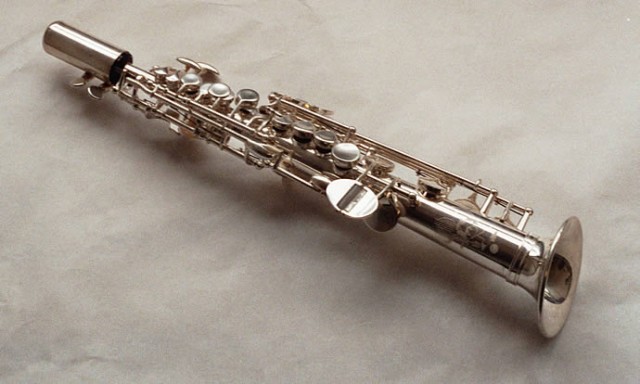Making That First Choice
Commonly, people start as musicians from a very young age. Most find their love of music through school when they are, often times, required to choose a music program to enroll in. This was so for me. I had to choose between chorus or instrumental music. As a shy kid, I was not looking forward to the decision. Ultimately I chose trumpet because I knew what it was- who didn't? However, my mother told me that too many people would be playing it, and I should choose something else. Well of course, I chose saxophone because, other than trumpet, it was the only instrument I really knew. Looking back, I'm grateful that I made the decision that I did, although I admit now; it was a horrible way to decide.Well, then what are some good ways to decide on an instrument for a beginner? Well, there are some key things to keep in mind for choosing an instrument, whether you are a child beginner (in which case, parents should note several things) or someone older who has decided to start playing.
First off, do some basic research. Obviously the names of instruments are something of some importance. Some basic ones include flute, clarinet and saxophone of the woodwind section and of course trumpet, trombone, French horn, baritone and tuba of the brass section. For the brass- if brass is what you want to play -choose what you have heard played before; something that you like the sound of. If you like the sound of the trumpet, go with that. Give it a try if you have the means. If you enjoy it, stick with it and practice. Otherwise, try another brass instrument. Keep doing this until you find the fit for you. Eventually, after playing a while, you might want to switch- or simply try something new. In this case, try any number of brass, including those that are more challenging. Now that you have, say, trumpet experience under your belt, you can learn the other brass instruments a little bit easier. For the woodwinds, again- pick one that you know you like the sound of. If you like the flute, stick with it. Play it, learn it, love it, and eventually, if you want something new, try the piccolo. It's the same kind of instrument as the flute, only half the size and an octave higher than what is written on paper. If you choose clarinet, there are alternatives for this as well. I recommend starting with the soprano Bb clarinet (your standard clarinet). From there you can try alto clarinet, bass clarinet, or some of the even lower types, like the contrabass clarinet. Then of course, there's the saxophone group. I recommend starting with the tenor saxophone, even though I started, and most people start on the alto saxophone. However, I suggest starting on the tenor sax because it's generally easier to play, and compositions for the instrument (mostly classical) will be more basic. Generally, higher instruments are expected to flow through notes quickly, while the lower register instruments take more of the basic harmonies. In my case, I started out on the alto sax, but really found my calling on the even higher soprano sax, as it has an almost oboe-like sound to it (making it great for classical) and really shreds the smooth jazz solos that I take. Some students of music will move onto the lower saxophones, though. Baritone saxophone is in the same key as the alto saxophone- Eb -but is much larger, and- obviously -lower in pitch. It's a great sounding horn which really rocks those funk jazz grooves. Both the saxophones and clarinets use one reed on the mouthpiece to produce sound. There are some instruments, though, which are arguably more difficult to play that are double-reeded instruments. They literally have two opposing reeds which vibrate against one another, making a rather unique sound. The oboe and bassoon are the two common double-reeded instruments, although to say that they are common is a bit of an exaggeration. Oboe in particular is a fantastic sounding instrument, one which I have actually learned the basics of, but is rarely played- so rare in fact, that there is a huge demand for them in concert bands, especially in universities and such. They are difficult to learn, and the reeds cost a considerable amount of money. Most oboists actually make their own reeds.
After finding the instrument type for you (which I did not list all of them- like percussion and more), you should look at prices on multiple websites and in many shops. Price can make a big difference on what instrument you start out with. If you choose a string instrument such as the violin, you can find student pieces anywhere for a very low price- about eighty dollars is a good price for a starting violin. On the other hand, the cheapest student alto saxophone you can get will be in the two hundred dollar range. Larger saxophones will usually be more expensive. Clarinets aren't usually too bad, as student horns can be made out of inexpensive materials. Expect a student clarinet to be around a hundred dollars, while student flutes can be under a hundred dollars. Trumpets will go for about a hundred and fifty dollars or so, and trumpeters have a cool option of using a pocket trumpet. A tuba, unfortunately, is over a thousand dollars at it's cheapest. Sousaphones- the marching versions of the same instrument -can be half of that. Then of course there's gear and cases for each, though the instrument will come with everything you need to get started (it should), but remember, saxophonists, buy a better mouthpiece with your new sax.
Finally, with instrument in hand, practice very hard. Get some music to learn, play in a band and most importantly, enjoy yourself. Music isn't easy, but it's never boring. Make the first choice a good one.

